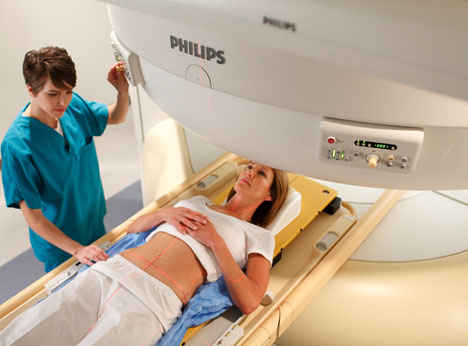Radiation therapy is a treatment for various types of cancer. It is often used alone, but it can be combined with other regimens, including chemotherapy. The treatment’s focus is to eliminate tumors, shrink tumors before surgery and to destroy any remaining cancerous cells after surgery. Radiology oncology is one of three specialties relating to cancer treatment.

Benefits of Radiology Oncology
When radiation treatment is recommended, it can bring the following benefits:
- Out-patient treatment. In most cases, radiation therapy takes as little as 30 minutes and allows patients to return to their normal activities as soon as possible. In addition, there is usually no hair loss unless the treatment is targeted at the skull or another area where hair grows.
- Lower recurrence rate. For common cancers of the prostate, bowel and breast, radiation therapy is very effective at preventing the disease from returning.
- Pain relief. For cancers that cannot be cured, radiation therapy alleviates pain and controls bleeding.
Side Effects of Radiology Oncology
In order to destroy cancer cells, radiation treatment must be used at high doses. This means it can damage healthy tissue and cells near the tumor. That is why patients experience side effects that include:
- Fatigue. This is a feeling of tiredness that lasts throughout the treatment. If a patient is also receiving chemotherapy, fatigue can become extreme.
- Skin problems. Radiation therapy can cause the skin to become dry, peeling and itchy. Blisters may also occur. These effects usually resolve soon after the treatment is finished. In some cases, skin problems may persist, and the doctor will need to adjust the treatment plan.
- Mouth issues. Undergoing radiotherapy may cause a dry mouth, sores, difficulty with swallowing, tooth decay and jaw stiffness. Patients may need to work with a dentist to alleviate these side effects.
- Chest problems. When radiotherapy is focused on the chest, patients can experience nipple and breast soreness, shortness of breath, pain in the shoulder, fever and cough. In rare cases, the lungs can become scarred from radiation pneumonitis if it is not properly treated.
- Stomach, abdomen and pelvic effects. Diarrhea, nausea, rectal bleeding and bladder irritation can occur with radiotherapy in these areas. Women may experience a loss of their menstrual period, and men may have trouble maintaining erections for sex.
- Radiation recall. This is a rash that typically appears within a few days or weeks of starting radiotherapy although it can be delayed by months or years. It starts as swelling and progresses to redness, sores and peeling. The condition is treated with corticosteroids.
Those considering radiology oncology to treat their cancer will need to discuss the possible side effects with their healthcare team. There are many ways of managing uncomfortable symptoms, and clear communication is key.
Bio –
This guest post was provided by Teton Cancer Institute, providing cancer treatment in Idaho Falls, Idaho and the surrounding areas. TCI offers some of the most advanced and innovative care for cancer in the South East Idaho area.





























No Comments
Leave a comment Cancel